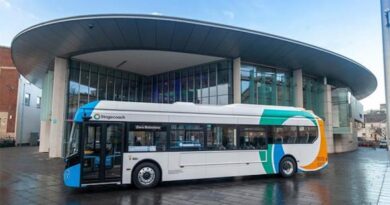Stonewater to install EV chargepoints to new and existing developments
National housing provider Stonewater has unveiled plans to roll out EV chargepoints across its new-build and existing housing developments.
In conjunction with the government’s announcement in November that all new homes will be required by law to install EV charging points, Stonewater has already begun installing the infrastructure needed at each car parking space on any new developments.
In addition to this, the housing association has gone one step further to co-design an approach that also considers the needs of its existing customers and their homes.
Emily Batchford, environmental sustainability officer at Stonewater, said: “Our commitment to overcoming the challenges facing us to achieve net-zero include not only providing energy- efficient homes that are warm and affordable for our customers but also where possible, support them to live more sustainably. Providing EV charging points is a real step- change in delivering on our commitments in this area.
“With the upcoming regulation changes, how we best support our customers in the switch to electric cars has been a core focus for various areas of the organisation. This new approach facilitates existing customers to install safe and compliant EV charging points on their driveways as well as outlines our approach to retrofitting the infrastructure in communal car parks.”
A working group featuring 18 colleagues from across Stonewater’s homes, development and customer experience teams collaborated on the approach approved by the organisation’s board last month.
The housing association, which currently manages around 34,500 homes, is now working on a framework to begin procuring a third-party EV charger provider that can oversee the management and installations across its schemes.
Martin Fox, head of development (North) at Stonewater, added: “We’re currently leading a significant house-building programme at Stonewater, whereby we’re aiming to build a minimum of 1,500 new homes a year from 2022/23. However, providing much needed new homes includes ensuring they are designed to help meet the challenges of the climate crisis.
“Since April last year, we’ve adopted a policy of ensuring any new homes built, where we’re the developer, are done so without fossil fuel heating, to remove all fossil fuel heating from our developments by 2040.
“In addition to how we heat our homes, transport is also one of the biggest contributors to global carbon emissions, with road travel accounting for nearly three-quarters of this total. EVs, therefore, have a significant role to play in building a zero-carbon future and this policy goes a long way in making it a more feasible and practical choice for more of our customers, sooner.”






